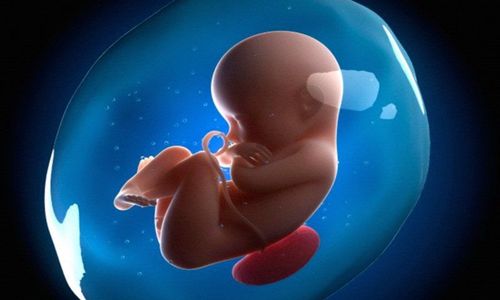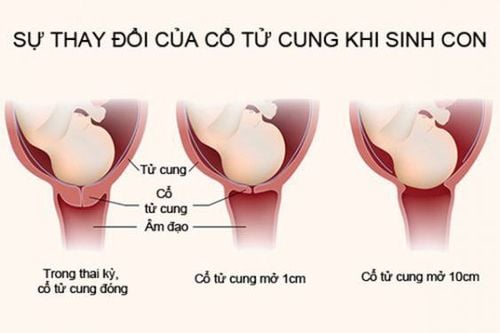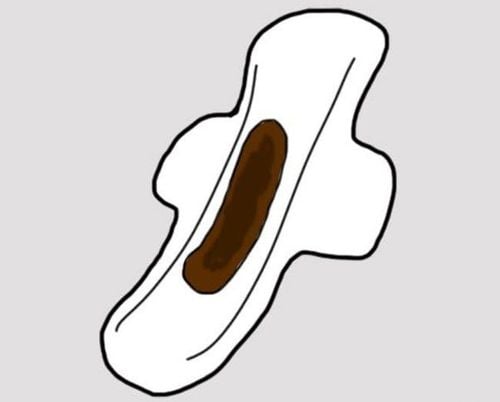This is an automatically translated article.
When reaching the end of pregnancy, the rupture of membranes is a typical sign to recognize the impending birth of the baby. However, it will also be accompanied by bewilderment such as how long does it take to give birth? Is it possible to get sick in time?... It's very important to understand after your water breaks, because this helps you know what to do and what to prepare.
1. What is amniotic fluid?
Amniotic fluid is the fluid that surrounds the fetus in the womb, its main function is to provide nutrients to the fetus.
Amniotic fluid is white in early pregnancy and becomes cloudy as the fetus grows and is milky white like rice water from 38 weeks onwards.
Amniotic fluid plays a very important role for mother and baby during labor:
Cervical dilation is facilitated by the amniotic fluid helping to establish the amniotic sac to dilate the mother's cervix. Thanks to the presence of amniotic fluid, uterine contractions will not be able to cause trauma to the fetus. The sterile nature of amniotic fluid creates a sterile environment that protects mother and baby during labor from infection. After the water breaks, thanks to the oily amniotic fluid that lubricates the mother's genital tract, the fetus will be more likely to be born.
2. Signs of labor
2.1 Lower abdominal prolapse Appears a few weeks or even a few hours before the actual birth, especially recognizable for pregnant women giving birth to their first child. At this time, the baby's head is turned down in a low position, this puts pressure on the bladder, making the pregnant mother urinate more often, and at the same time, the mother will feel easier to breathe because the baby no longer takes up lung space and does not work. reduce pressure on the chest. But moving will be more difficult and heavy.
2.2 Uterine contractions in true labor Lower abdomen is hard, painful and does not decrease despite changing positions. Pregnant women will feel the contractions and relaxation in the abdomen.
At the stage of labor, contractions are not the same in every pregnant woman. At first, contractions are about 30 - 90 seconds long and the contractions are gentle, irregular about 15 - 30 minutes, possibly contractions that start quickly and then slow down. At the end of the phase, the duration of contractions shortens to about 5 minutes. It can last a few hours, but sometimes up to several days.
Another sign that the uterus is gradually opening is pink mucus appearing in the underwear. At this time, pregnant women may break water.
In active phase labor: labor contractions last about 25 - 60 seconds and the interval between these contractions is 3 - 5 minutes, lasting on average 7 to 12 hours in mothers who give birth your first baby and about 5 hours if you're having a second. A few women even go through a prolonged labor, 18 to 24 hours. At this time, the cervix of the pregnant mother will be fully dilated with a size of about 4 - 10cm so that the baby can come out.
2.3 How long does it take for a pregnant woman to give birth - Amniotic fluid rupture is a sign that the baby is about to be born, for mothers who are over 37 weeks pregnant, from the time the water breaks to the time of delivery, it takes about 7-12 hours. . How long after amniotic fluid breaks? Pregnant women can wait at home until the first labor contractions appear before being admitted to the hospital, but no longer than 12 hours.
3. Recognizing the phenomenon of rupture of membranes
3.1 Symptoms of Water Break Before the water breaks, uterine contractions will appear with frequency, this manifestation is often quite similar to the contractions during labor.
You can feel the "popping" sensation of the amniotic sac. The feeling when the water breaks can be different for pregnant women, amniotic fluid will overflow from the vagina quite a lot.
Each pregnant mother may have a different feeling when her water breaks:
Pregnant women will feel a fast and strong flow of water, suddenly pouring out from the vagina but not feeling any pain. When your water breaks, you can also feel the amniotic fluid flowing out in a small stream, slowly down the leg. On the other hand, there are pregnant women who just leak amniotic fluid and find that the vagina is more oily than usual, this phenomenon lasts a few days before you see signs of labor. At the end of pregnancy, the phenomenon of lower abdomen causes pregnant women to urinate frequently, which makes it easy for many pregnant women to confuse whether it is urine, vaginal fluid or amniotic fluid. It is important to consult a doctor when you are not sure if your water has broken.
Amniotic fluid is different from vaginal fluids, urine in the following features:
Amniotic fluid: colorless, odorless or slightly sweet liquid, amniotic fluid may contain a few speckled blood stains or colored mucus white. Urine: The characteristic odor of urine can be clearly discerned, it is usually yellow or may be darker. Vaginal discharge: the discharge is milky white or yellow, green. The fluid may have a fishy odor. 3.2 Abnormalities in rupture of membranes Water breaks before spontaneous labor (about 8-10% occurs before 37 weeks of pregnancy) when so, the baby's risk of infection is higher the longer the stay. in the womb after the water has broken. So how long does it take to give birth? At this time, the doctor closely monitors to make sure the baby is safe in the womb or the use of methods to induce labor, even appoint a cesarean section to help the mother bring the baby out sooner if necessary.
Manifestations of amniotic fluid mixed with meconium is when the amniotic fluid breaks, the amniotic fluid oozes yellow or green. When the baby is born, but inhaling meconium is very dangerous, must be taken to the hospital quickly. fast.
Vinmec International General Hospital offers a Package Maternity Care Program for pregnant women right from the first months of pregnancy with a full range of antenatal care visits, periodical 3D and 4D ultrasounds and routine tests to ensure that the mother is healthy and the fetus is developing comprehensively.
Pregnant women will be consulted and checked for health under the close supervision of experienced and specialized Obstetricians, helping mothers have more knowledge to protect their health during pregnancy as well as reduce reduce complications for mother and child.
Please dial HOTLINE for more information or register for an appointment HERE. Download MyVinmec app to make appointments faster and to manage your bookings easily.













